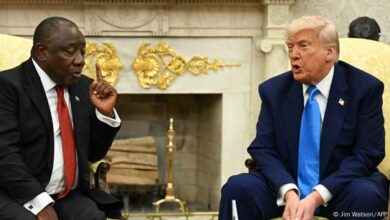
Preliminary investigations into the alleged abuse of power and corruption that have rocked the Electoral Commission (EC) have commenced.
The Chief Justice has reportedly written officially to the embattled Chairperson of the EC, Charlotte Osei, to respond to the damning allegations that could lead to her impeachment.
It is learnt the letter from the Office of the Chief Justice was delivered last Friday. The two other Commissioners, Amadu Sulley and Georgina Opoku Amankwaa, have equally been written to in a bid to get their reaction.”
Legal impeachment
However, before the formal preliminary investigation commences, a private citizen, Ayamga Yakubu Akoglo, has filed a writ at the Supreme Court, seeking to prevent the Chief Justice, Sophia Akuffo, from going ahead to investigate the EC boss.
The plaintiff wants the suit, which also cites the Attorney-General to declare the action being initiated against the EC boss by the Judicial Council as unconstitutional, void and of no effect.
He is claiming that the issues raised in the petition against Mrs Charlotte Osei had nothing to do with her core functions as prescribed under Article 45 of the 1992 Constitution and as a result, did not warrant her removal per Article 46 (1) of the Constitution, describing the petition as ‘defective’.
He is averring that the petitioners’ allegation of financial or procurement impropriety against the EC boss should not constitute the grounds for impeachment proceedings under Article 46 (1) since financial and procurement functions are not part of the Chairperson’s core duties.
Drama at Commission
First, it was Maxwell Opoku Agyemang, who triggered the controversial drama with his 27 point petition against the Electoral Commission boss Charlotte Osei. The petition was laden with allegations of fraud, incompetence, misconduct and poor human relations.
Even though the names behind the petition are unknown to the public, the lawyer insisted the petitioners have been identified by the president. The EC chair in a rebuttal denied the allegations against her but made fresh allegations against her two deputies, Sulley Amadu and Georgina Opoku Amankwaa.
She also filed a defamation suit against the lawyer for petitioners who are seeking her impeachment from office.
In a contest of feisty rebuttals, the two deputy Chairpersons at the Commission fired their own allegations against the EC Chair.
In the midst of their rebuttals, another lawyer sent a new petition to the president demanding the impeachment of the two other deputies at the Commission for stated misconducted.
The whole drama at the Commission was crowned with a spectacle at the floor of Parliament when the EC Chair in the company of one her deputies, Amadu Sulley told MPs she was speaking for herself as the EC chair and not as the Commission.
She was answering a question on why the Commission failed to include their internally generated funds for last year in their financial report.
Just when the dust was about settling, and the prima facie determination made by the Chief Justice against all three Chairpersons, a new petition has been filed against the Chief Justice.
Lawyer Yakubu Akolgo maintains Article 146 (2) which spells out how Judges of the Superior Court will be removed is not applicable to the removal of the Chief Justice.
Even though the salary levels of the Appeals Court Judge is coterminous to that of heads of Commissions and the removal processes of the two offices have been deemed to be similar, Akolgo is insisting the processes of removing a judge cannot be used to remove the Chair of the Electoral Commission.
“That Article 146(2) of the 1992 Constitution is neither mandatory nor appropriately suitable for the removal of the Chairperson of the Electoral Commission and the said Article not derogated or contravened if a full bench of the Supreme Court assumes duty to inquire into the petition to dispose-off it or otherwise.”
Among other reliefs, Lawyer Yakubu Akolgo is praying the Supreme Court to restrain the Chief Justice from proceeding with the prima facie determination.
He would rather the Chief Justice empanels a full bench of the Supreme Court to inquire into the petition brought against the Chair of the Commission.
Source: daily guide




